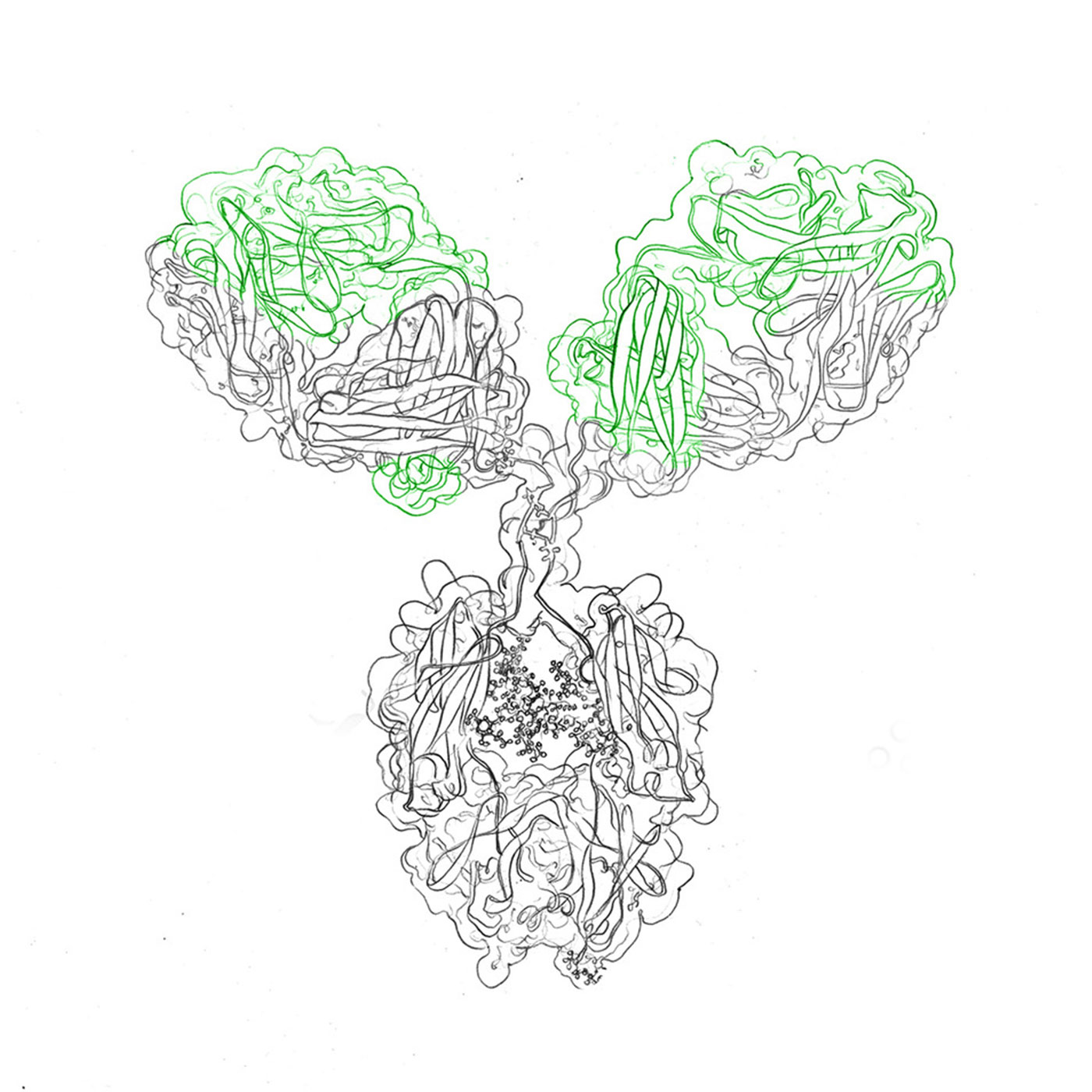Custom recombinant antibody production
We are a leading service provider for custom recombinant antibody production. Get in contact!
Antibodies, also known as immunoglobulins, are vital proteins in our immune system. They serve multiple functions in our bodies – from defending against pathogens to aiding in diagnostics and therapeutic applications.
In this article, we’ll delve into the different fields of application of antibodies and answer the question: What are antibodies actually used for?
Antibodies, also known as immunoglobulins, are proteins produced by the immune system in response to foreign substances called antigens (e.g. to be found on bacteria, viruses, allergens or other intruders).
The Y-shaped character of the antibody structure is composed of polypeptide chains – two heavy chains and two light chains consisting of peptides. This structure enables them to bind specifically to antigens, marking them for elimination.
Subscribe to our Newsletter
Get all the latest updates, and learn about our advancements in antibody production.
Subscribe now
Antibodies are essential for defending the body against infections. They can be naturally generated in vivo, in response to infections or vaccinations. Additionally, they can be produced in vitro through biotechnology techniques like monoclonal antibody production, allowing for the creation of identical antibodies for various medical and research applications, including diagnostics and therapeutics.
Learn more on what an antibody is
Antibodies are central players in the body’s natural immune defense by protecting against pathogens. Human antibodies, produced inside the body by specialized white blood cells known as B lymphocytes, are polyclonal antibodies that carry antigen-binding sites, where they lock onto specific foreign invaders, termed epitopes.
The specificity of this antibody binding is remarkable, ensuring a precise immune response. When these antibodies encounter pathogens, they mark them for destruction through various mechanisms, including phagocytosis, where immune cells engulf and digest the invaders.
In immunology, five primary types of antibodies (isotypes) can be distinguished, each format with specific functions:
Antibodies serve as valuable reagents in diagnostic medicine, revolutionizing the precision and reliability of detecting specific antigens.
Among the most prominent diagnostic tools are ELISA (Enzyme-linked Immunosorbent Assay) and Western Blot, both of which heavily rely on antibodies for their exceptional accuracy.
ELISA, in particular, excels in identifying specific antigens by harnessing the binding specificity of antibodies. This method is instrumental in clinical trials and medical research, enabling scientists and healthcare professionals to scrutinize diseases, study biomarkers, and assess treatment responses with unwavering precision. In addition, techniques like flow cytometry, providing in-depth cell profiling and quantification, immunofluorescence, immunohistochemistry (IHC), immunocytochemistry or immunoprecipitation further amplify the diagnostic potential of antibodies.
These antibody-based diagnostics have transformed healthcare, setting new standards for disease detection and management.
Antibody therapy has emerged as a potent and targeted approach in the treatment of various medical conditions. Specific antibodies, often developed through hybridoma, phage display or recombinant DNA technology, are deployed to bind with precision to specific proteins, cell surface receptors or target antigens.
In cancer treatment, antibodies can be engineered to attach to cancer cells by detecting target proteins, flagging them for destruction by immune cells, particularly T cells. Antibody-Drug Conjugates (ADCs) are another kind of antibody treatment that makes use of the high specificity of monoclonal antibodies (mAbs).
In autoimmune diseases like rheumatoid arthritis and Crohn’s disease, antibodies may be used for neutralizing autoantibodies responsible for the immune system’s misdirected attack on healthy tissues.
Immunotherapies exploit the power of antibodies to modulate immune responses and target disease-causing agents, marking a promising frontier in personalized and effective medical intervention.
Medical conditions for which antibody therapy is studied or used include:
We are a leading service provider for custom recombinant antibody production. Get in contact!

Considering the manifold advantages of antibodies in diagnostics and therapeutics, both researchers, biopharma manufacturers and healthcare providers are in need of high-quality antibody products for a wide range of applications.
evitria has profound experience in the expression of recombinant antibodies. With transient transfection of Chinese Hamster Ovary cell lines (CHO cells), we are able to provide partners worldwide with customized antibody products – such as recombinant, FC-silenced, afucosylated or bispecific antibodies – to push progress in antibody-based diagnostics and therapeutics.